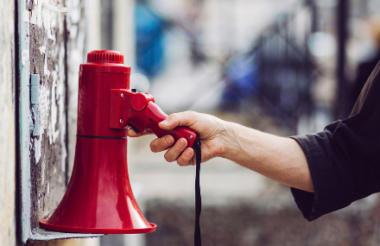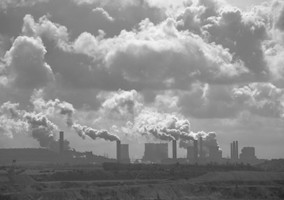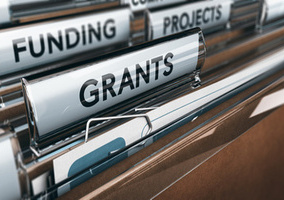This month, the UN Climate Change conference known as COP26 will open its doors in Glasgow. More than 100 world leaders will unite to take stock on what progress has been made since the Paris Agreement and will revisit their vital commitments to halving global emissions by 2050. With the world having failed to keep global warming under 1.5C in the last five years, this is a landmark meeting for the climate emergency.
Beyond the talks between delegates, young people, indigenous leaders, businesses, and grassroots communities, a range of activities are all set to play an important role in inspiring climate action. From an immersive IMAX experience to performances from singer/songwriter Ellie Goulding and group of musicians from Glasgow’s refugee community, there are hundreds of events taking place at COP to bring climate change to life on a global stage.
It’s a crucial opportunity for environmental charities, campaigners, and advocates to engage audiences and accelerate the fight to save our planet. However, communications and campaigns must really standout to cut-through the COP26 noise.
Here we’ve curated some of the best things to watch, listen and read to help charities gain traction when communicating on climate change.
Amplifying underrepresented voices
We know that ethnic minority groups are often more likely to live in areas with high air pollution and be hardest hit by climate policies. Charities are well-placed to show the realities facing these communities and make sure the stories they tell of climate change are relatable. Judy Ling Wong, President of the Black Environment Network, advises that we respect the cultural dimensions of a story and be accurate on how climate change is impacting the areas in which these groups live and work.
Judy’s top tips on diversity in climate storytelling are part of Media Trust’s series on climate communications with industry experts.
It’s also a good idea to ask yourself if the speakers and experts you work with reflect the diversity of your beneficiaries, staff, volunteers, and other key stakeholder groups? If not, you could risk excluding people from engaging with your work. The Climate Reframe project has curated an extensive list of climate experts, campaigners and advocates living and working in the UK.
Creating impactful content
What we say about climate change and how we say it matters. It’s a complex, daunting issue and the language we use can really make or break a campaign. On Road Media has research-backed guidance prepared by the FrameWorks Institute which charities can use to talk about change in a way that positively shifts mindsets. Recommendations include avoiding jargon, showing how change is possible and emphasising our shared responsibility to future generations.
Impactful communications on climate change also need strong visual language. Climate Visuals, a project of the charity Climate Outreach, says it’s important that the imagery on the crisis connects with the identity and values of the viewer. It’s about showing real people and the serious impacts of climate change, as well depicting solutions. The project recently released 100 photographs freely available to non-for-profit groups, to help communicators find and select photography that drives action.
User-generated content is also a persuasive and cost-effective tool for charities wanting to shift mindsets and inspire action during COP26. People are 2.4 times more likely to view user-generated content as authentic compared to content created by brands. Writing for Media Trust, James Berg, Captain of content marketing crew Picaroons, has shared best practice for encouraging your audience to develop and share content for you.
Getting your content in front of the right people
At Media Trust, we recommend having a strong content strategy that maps up to your key objectives and developing a persuasive call to action with every output you release. Facebook Social Impact has several useful training modules to equip you with the essential knowledge to make the most of Facebook and Instagram. You’ll find a range of modules covering everything from creating a content strategy to training on Ad basics.
The sense of urgency to act on climate change is now better reflected in the media, which presents opportunities for charities wanting to gain coverage. At our recent masterclass with an agency on media pitching around COP26, the experts advised charities to look out for new climate reporters at nationals like the BBC and producers for Sky’s Daily Climate Show. The CIPR also has some helpful tips in this webinar on preparing a media pitch that will stand out.
Finally, if you’re interested in running events before or during the conference to engage local stakeholders, The Climate Coalition has got you covered. Ahead of their ‘Great Big Green Week’ they created a whole array of activity ideas and resources, from litter picking and seed planting, to hosting climate book clubs and film screenings. While the Great Big Green Week has now passed, their guides and templates are a good place to start when looking to inspire community action.
Ceri Jones is climate lead at Media Trust
Related articles












